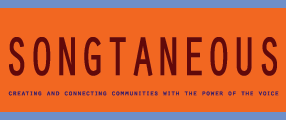Singing Lessons FAQ
Frequently Asked Questions
1. Are singing lessons and voice lessons the same thing?
I use the terms singing lessons, voice lessons and vocal instruction interchangeably.
2. What style(s) of singing do you teach?
I primarily teach contemporary vocal technique. This technique allows students to sing a variety of current or “contemporary” styles and genres, such as jazz, R&B, pop, rock, belting, country and reggae.
3. What kind of teaching experience do you have?
I have taught, directed and coached singers for nearly two decades. In 2010, I joined the faculty at Minneapolis Community & Technical College. I currently teach in my own studio, at MCTC and offer workshops several times a year.
I hold a BSS from Cornell College and an AAS (in vocal performance) from McNally Smith College of Music. In addition, I have studied vocal improvisation since 2003 in the US, Europe and Canada.
4. What should I bring to my lessons?
You are welcome to bring a recorder and record any of your lessons with me, in fact I encourage it. For your introductory lesson, I will provide you with a recording of the warm-up exercises we go over in the lesson.
You may also want to bring a water bottle and a notebook. And, it is a good idea to wear comfortable clothes (perhaps in layers) as we will do some moderate stretches.
5. How often do we meet?
If you are beginning student or if it has been a while since you worked on your vocal technique, I recommend weekly voice lessons so that you will see progress. At a minimum, I require that new students meet with me at least every other week. Continuing students can meet with me weekly, biweekly or monthly.
6. What is the difference between new and continuing students?
I consider singers who have not take singing lessons before and singers who have had an extended break (more than a year) from singing instruction new singers. If you have had a lot of previous vocal instruction or taken workshops with me, ask me about coming in as a continuing student. Continuing students can purchase smaller lesson packages and meet with less frequency than new students.
7. How much should I practice?
Obviously, you will see the most progress with consistent, regular practice. It is unlikely you will see dramatic changes in your vocal technique without routine practice.
That said, it is up to you to determine how much time and energy you want to invest in your singing. To start, I recommend working with your warm-up CD daily. Once you receive different exercises and songs, I suggest that you schedule practice sessions 3 to 5 times a week. You can consider work on your overall musicianship – music notation/theory, basic piano skills, studying musical genres, transcribing etc. – practicing.
To learn more, you can read an article I wrote about practicing in the singingly newsletter (read it here).
8. How long will it take?
How fast you progress depends on where you are starting vocally and where you want to go. When we work with our voices, we are training an instrument we cannot see to make extremely complex, yet extremely subtle coordinations. This takes practice.
A large part of your progress depends on how much you are willing and able to practice. The other part depends on your individual instrument and how quickly you pick up new coordinations. Some students will notice improvements in their singing right away, for others it may take longer. Part of the reason I ask new students to commit to 10 lessons is so that we have time to implement the building blocks of good vocal technique and start to see improvements in the goal areas we set.
9. I have never taken singing lessons before, is it scary?
I like to think my methods are more silly than scary. Believe me I understand that our voices and how we sound are very closely tied to how we view ourselves and that sometimes trying new vocal things can leave us feeling vulnerable.
Most vocal exercises — the singing we do to learn and practice vocal technique — are often unfamiliar and a little strange. It is normal to feel a little awkward and perhaps a little foolish. (I can promise that I will not make you try any exercises I am not willing to demonstrate. *smile*)
10. What if I try a lesson and am not sure if I want to continue?
That is exactly why we meet for an introductory lesson. I realize I am asking you to make a commitment when you purchase a lesson package with me. It is important that you find the best teacher for you. Of course, I am happy if it that is me, but I simply cannot be the best teacher for every single singer. You should work with the best teacher for you and I want to work with singers who are going to get the most out of working with me. If we meet and you decide we are not a good fit, that’s okay. I am happy to suggest other singing resources.
11. Do you offer group lessons?
Yes. Generally, the group finds me as opposed to me scheduling group lessons. I also lead singing workshops several times a year.



